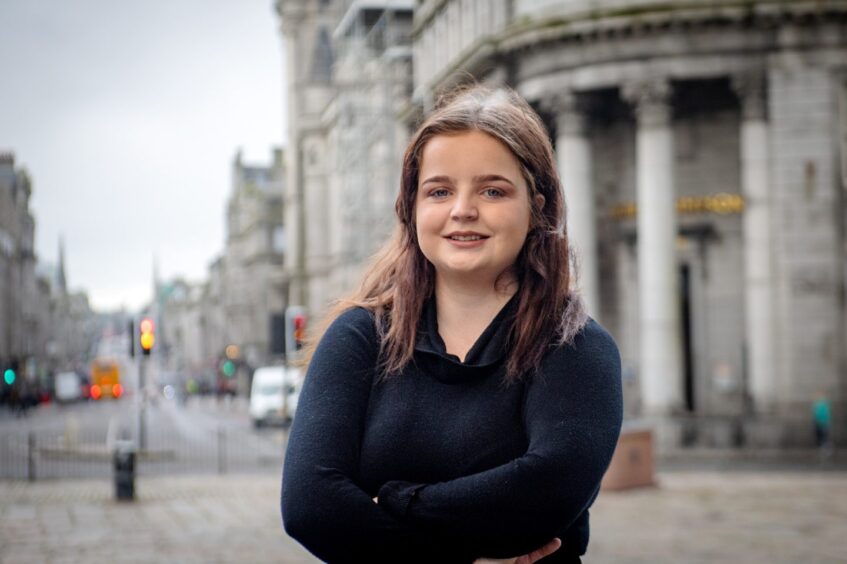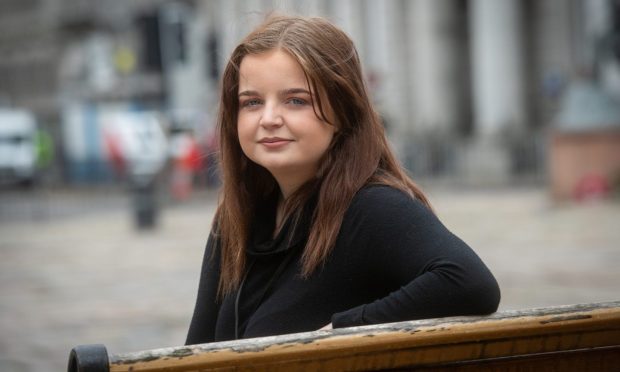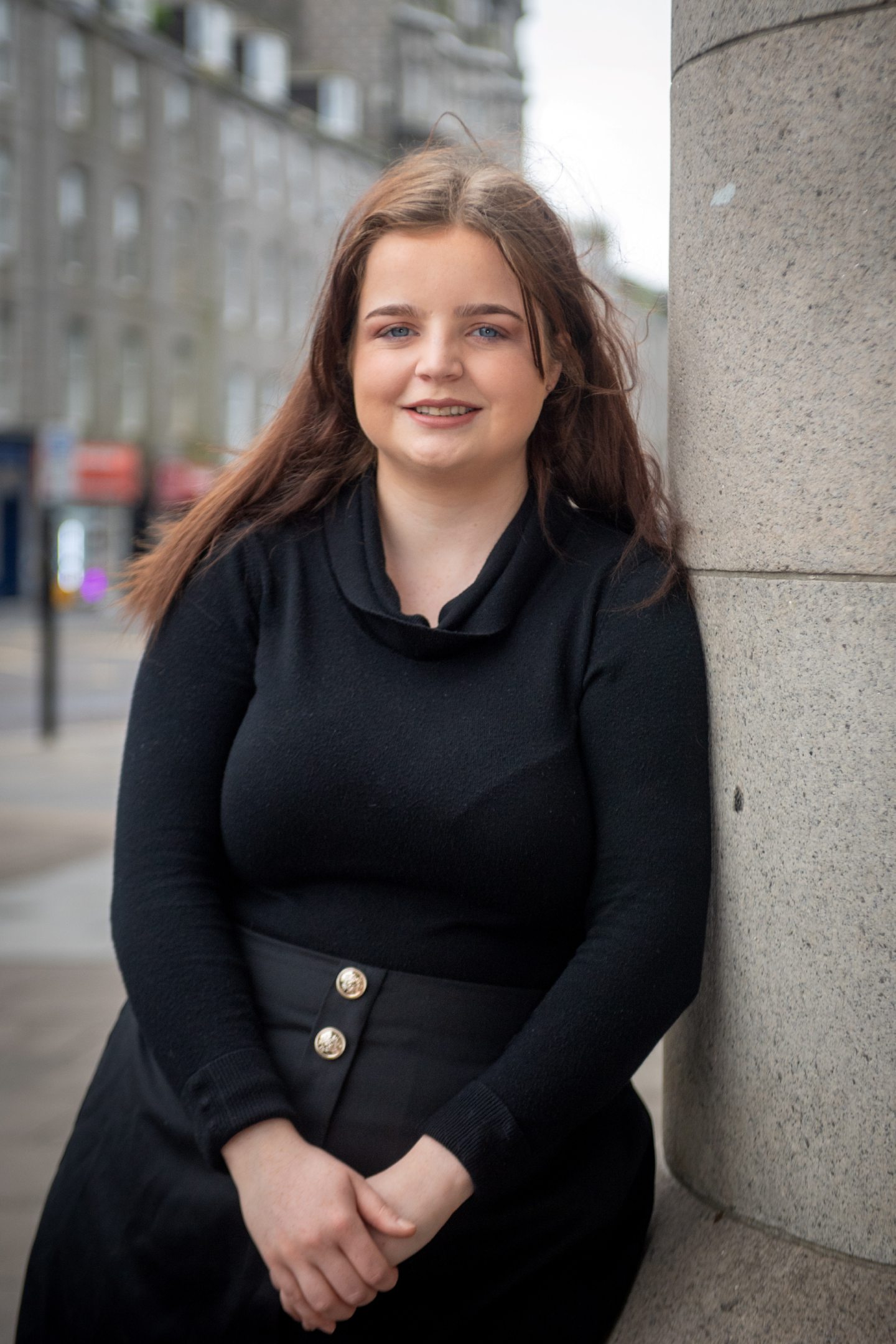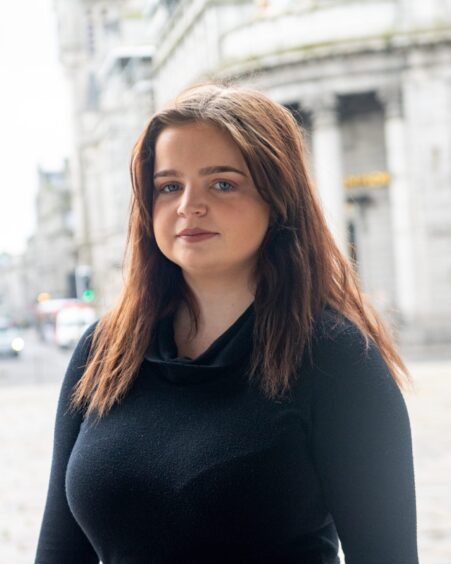There are two reasons Sophie Corroon became a volunteer helper at Aberdeen Sheriff Court.
First, as a law student at Aberdeen University, she thought helping people navigate the criminal justice system would be invaluable experience for her future career.
Second, as a victim of crime herself — a crime that left her feeling vulnerable and confused — Sophie knows how disorientating it is to be thrust into the machinery of the Scottish legal system.
So, now part of Victim Support Scotland’s volunteer programme, Sophie roams the corridors of one of the north-east’s busiest courts, offering support to victims, witnesses, or their families and friends.
She’s there for the practical things, like how to get hold of a Ring doorbell, which has a camera inside, to alleviate personal safety fears.
But she’s also a shoulder to cry on, which she knows from her own experience can be priceless.
“Even just knowing that I’ve managed to help one person to calm them before they’ve given their evidence,” she says. “Just that I’m helping them even a little bit as they go through such a tough time — it’s a great feeling.”
Sophie’s ‘bizarre’ experience as a victim of crime
Sophie’s own encounter with the justice system started before she moved to Aberdeen.
That was when a classmate at her high school in Falkirk started taking photos from her and her friends’ social media and posting them on a website.
“It was really sort of grim, horrible captions and sexually abusive texts and stuff,” says Sophie, who is now 20.
The website threatened to release personal information about Sophie, and friends soon alerted her to its existence.
Sophie remembers thinking it was all very “bizarre”, as well as her confusion over what to do about it.
Her parents, shocked at the intrusion, got the police involved. But even then Sophie felt in the dark about what would happen next.
“I didn’t really know what kind of crime it was, or whether they would take it seriously,” she says.
“The police kept talking about the Communication Act but I didn’t really know what that meant.”
It was only later when she asked legal experts what was happening in her case that she discovered the existence of another Act that the crime fell under.
‘It’s really hands-on, it’s really personal’
But it was that initial feeling of helplessness that eventually led her to sign on as volunteer support worker for Victim Support Scotland after she moved to Aberdeen to start her law degree.
She is still new to the volunteer scheme but has so far worked half-a-dozen days at the Sheriff Court in Aberdeen.
“It’s really hands-on, it’s really personal,” she says. “And helping vulnerable people, that is something I’m really interested in.”
Sophie is speaking as Victim Support Scotland launches a national drive to recruit 200 more volunteers across Scotland.
The aim is to widen the crucial help existing volunteers such as Sophie offer to people as they navigate their day in court.
The volunteers all go on a six-week training programme to get them up to speed with what they will need to know.
The training is online and designed to be done at your own pace. Sophie says she rattled through it quickly because she was eager to get to court, but trainees can take as much time as they need.
‘No one is slamming a fist on the table’
A lot of Sophie’s job encompasses simple things, such as telling a victim of crime where to get a surveillance doorbell, or explaining what actually happens in court.
Many of the people she helps are brushing up against the legal system for the first time, meaning a lot of the proceedings can seem strange.
“It’s not like it is on American TV where there’s question after question and someone is slamming a fist on a table,” she says.

“It’s not as dramatic as that, so giving people a clear idea of what it will be like seems to really help people.”
Sophie’s time is also taken up with chatting to witnesses who have spent hours waiting to be called into court. Sometimes, witnesses can go to court for multiple days without being asked to testify.
“It’s almost like a sort of hopelessness, just waiting in anticipation,” she says. “And being able to speak to them helps because they’re just sitting there, maybe on their phone or just staring at a wall.”
Anyone can be a victim of crime
Sophie’s own encounter with crime is not yet over. The case is due for sentencing in a few weeks.
Because the accused pleaded guilty, Sophie did not have to go to court herself.
But that didn’t stop her fretting about her potential role in the subsequent case and — given the peculiar nature of what she went through — how that might pan out.
“I was wondering, are there going to be loads of screenshots that I have to go through, surely that’s not something I have to do, is it?” she remembers. “Having no idea how that would really go was definitely stressful.”
In fact, the experience left her so confused she believes schools should have classes on being in court, in the same way they teach home economics or woodwork.
“Especially because anybody can be a victim of crime,” she says. “Anyone could witness something or be in the wrong place at the wrong time.
“So to have a clear understanding of what the court system is and who the procurator fiscal is, and the sheriff and the different types of court — that would be beneficial for everyone.”
How crime has shaped Sophie’s future path
Sophie still has a few years left of her law degree. But her career could end up being shaped by her experience as a victim of crime.
After discovering how important the support she received was, she now wants to assist others during a time when they might be at their most vulnerable.
“I’ve definitely considered working in the court as a PF [procurator fiscal] myself or something, to help these victims of crime as they come in and to be able to advocate for them,” she says.
“I can be the one to prepare them and to get the best evidence out of them and really support them.”
If you are interested in becoming a volunteer for Victim Support Scotland, click here.




Conversation